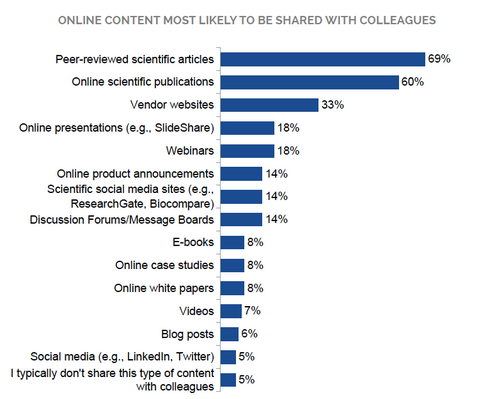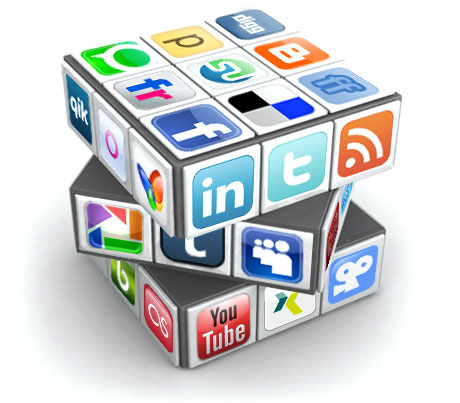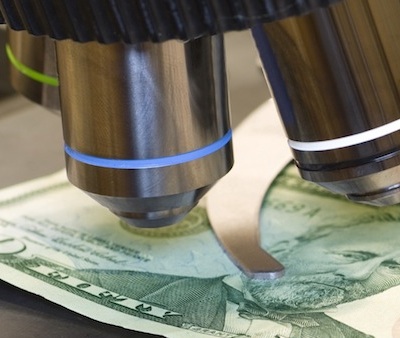Like all consumers who go online to learn more about the products and services they intend to buy, the trustworthiness of that source predicates how often certain resources are tapped.
On average, life scientists worldwide currently spend about 15 hours online each week accessing content related to their research. This amount of time is
Customers are often completing 60% or more of their pre-purchase activities without contacting a sales representative. Life science vendors can influence the purchasing decisions of these stealth customers by
despite the buzz about “email going away,” our recent study found that 50% of life scientists prefer to receive new product information via email compared to other communication channels.
Reduced federal funding affects not only current research budgets, but also future investments in infrastructure and training.
What do we need sales reps for, anyway? We thought that was a pretty good question. So much so, that we surveyed almost 1,000 scientists worldwide…
Labs can learn about, compare and purchase many of their products without ever talking to a live body at a supplier company at all.
importance varies when considering customer service and technical support for instruments or consumables.
Greater opportunities for customers to contact suppliers can help strengthen the customer – supplier relationship.
While both customer service and technical support are important, a greater percentage of respondents indicate that technical support is highly important in their likelihood to recommend a supplier than is customer service.
Pay Invoice
Latest Blogs
-
Assessing the Value of Product Attributes: Deciphering Consumer Preferences
April 25, 2024 10:28 am
-
How Market Research Supercharges Life Sciences Go-To-Market Strategies
April 24, 2024 12:34 pm
-
4 Key Components to a Winning Go-To-Market Strategy
April 24, 2024 12:28 pm
Sitemap
Your Data and Privacy
About Us
BioInformatics, part of the Science and Medicine Group, is the leading research and advisory firm serving the life science and diagnostic industries. Our expertise includes primary quantitative and qualitative research in addition to secondary research and published reports. We own a proprietary, international community of more than 55,000 scientists and biomedical researchers to provide insights that grow businesses and move markets. Our multi-disciplinary team is comprised of industry veterans, market research experts, and survey statisticians.









